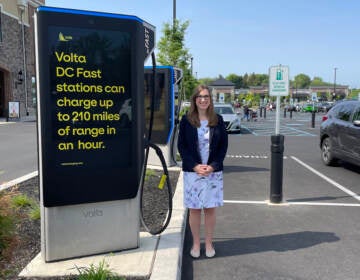Gov. Carney signs legislation to reduce vacant properties
-
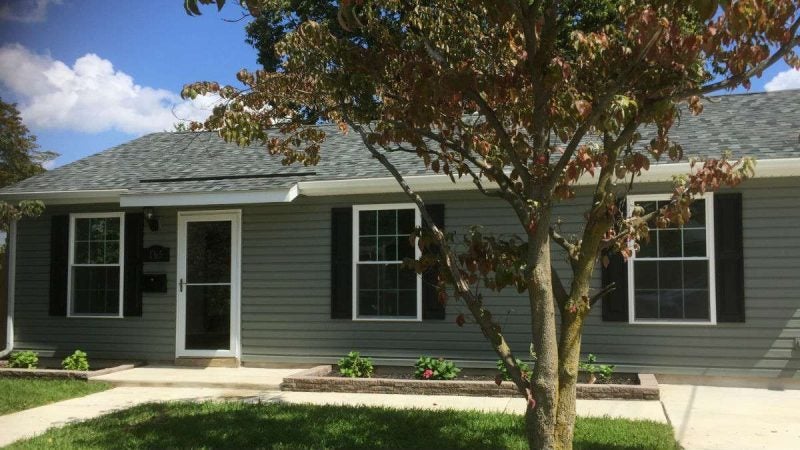
(Zoë Read/WHYY)
-

(Zoë Read/WHYY)
-
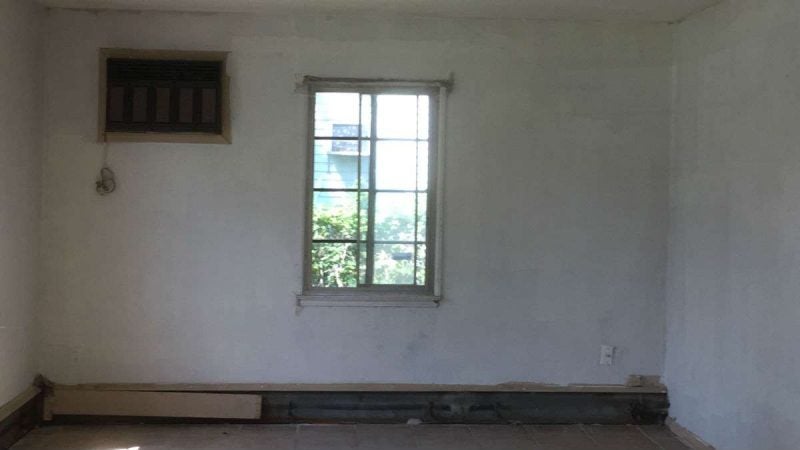
(Zoë Read/WHYY)
-
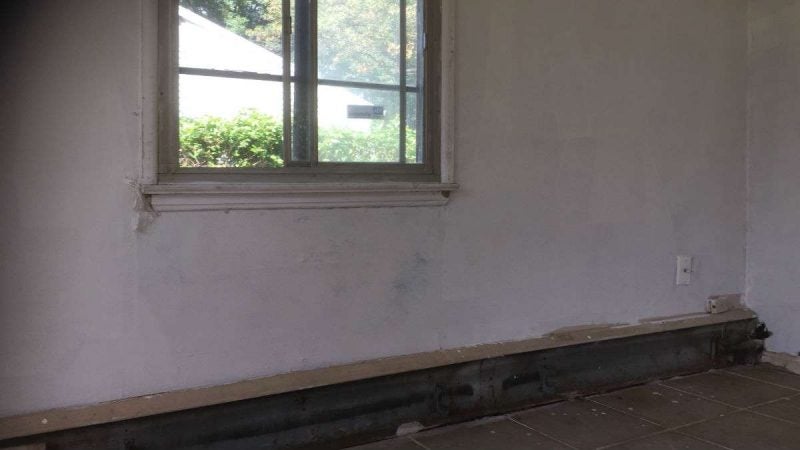
(Zoë Read/WHYY)
-
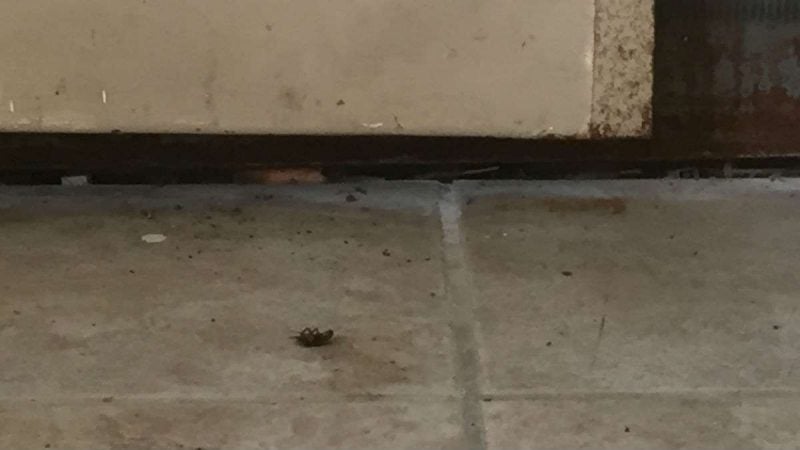
(Zoë Read/WHYY)
-
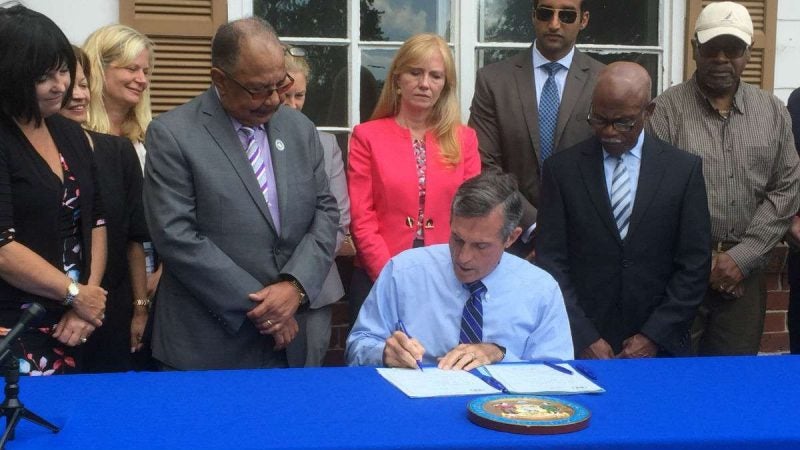
(Zoë Read/WHYY)
Gov. Carney signed legislation that aims to prevent vacant properties.
Tiea Thornton said she enjoys living in her New Castle neighborhood. But that enjoyment diminishes when homes in her community become vacant and aren’t kept up to standard.
“You see one house, and the next two houses might be vacant, so it’s a little stressful for the community, especially because it brings down the property value,” Thornton said.
“If you cut your grass and the property next to you is a vacant house and (the grass is) not cut it just makes you feel some kind of way—if I take care of my house, the house next to me should be taken care of also.”
There are 1,260 identified vacant properties in unincorporated New Castle County alone—and an estimated 2,000 in the state—increasing crime, trash and safety hazards, reducing property values and costing local governments money for the upkeep.
But legislators in Delaware hope new laws will hold real estate investors accountable and maintain the attractiveness of neighborhoods.
Flanked by New Castle County Executive Matt Meyer, D-New Castle, Wilmington Mayor Mike Purzyicki, D-Wilmington, and several state leaders, Gov. John Carney, D-Delaware, signed bi-partisan legislation Thursday that aims to reduce the rundown vacant and abandoned properties.
The bill signing took place in Thornton’s neighborhood of Garfield Park, which is one of several neighborhoods the state has invested a total of $8.25 million in to turn torn up, bug-ridden houses, into modern and attractive homes.
“Vacant and abandoned properties can bring down property values, attract crime and make neighborhoods unattractive places to live, work and play,” Carney said.
“Strengthening our communities requires creative solutions to the problems we face, and new tools such as these will help local leaders effectively combat blight by directly addressing vacant homes.”
One legislation allows local governments to weed out potential bidders at sheriff’s sales, restricting those who are delinquent on property taxes or violate property maintenance codes.
“A lot of bad actors want to get involved with buying property and when they buy the property they don’t upkeep it, they’re buying it in speculation to see that other people that fix their property up would increase the value of their property,” said state Rep. JJ Johnson, D-Wilmington, one of the bill’s sponsors.
Carrie Casey, who manages the Community Development and Housing division for New Castle County, said the ramifications of the foreclosure crisis between 2008 and 2010 still linger today.
She said the county has been limited when it comes to what they’re able to do to hold bidders accountable. Casey said the new legislation will better ensure a vacant property is bought by a responsible bidder.
“People have walked away from their house, it’s been vacant for years, the banks are not starting the foreclosure process and the only mechanism for the local government is to take that house to the sheriff sale process. The one thing we’ve learned is that we really need to make sure we’re putting the actual cost of having to maintain the house on the property and then move that house to the sheriff sale process,” she said.
“Before we can work that process, we want to make sure we have a strong system in place, which this legislation does, which is to make sure people that are going to be bidding on these properties don’t own a bunch of code and taxes on other properties, so we want to be able to make sure the people bidding on these properties are going to make that house a place where people want to live. It will allow us to get that house to someone we think will eventually do something with it and do it quickly.”
The other bill gives local governments the power to place a lien on a vacant property in violation of maintenance standards to make up for enforcement and abatement costs.
“House Bills 187 and 188 give back some measure of control to local governments to combat this downward spiral in the life of a community by allowing them oversight of those that would buy these properties with no genuine intent to rehabilitate the properties and by allowing local government to cover their costs in having to maintain properties and expend local government resources in the course of doing so,” said state Sen. Stephanie Hansen, D-Wilmington, who also sponsored both bills.
Thornton said she and her neighbors would be thrilled if the legislation reduces problem properties on their streets.
“It would be fantastic,” she said. “Because, then it would raise the property value, there would be less theft because they break into vacant houses for the copper or what have you, so it would benefit everyone—a even the kids in the neighborhood.
WHYY is your source for fact-based, in-depth journalism and information. As a nonprofit organization, we rely on financial support from readers like you. Please give today.



